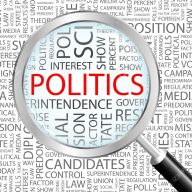ThePoliticsView has had a short hiatus during the months of September and October. The reasons being the editor took time off to amend personal matters.
This blog should provide an overview of the main political stories that have occurred since the last published article, when Diane James was appointed the new UKIP leader back in early September.
Speaking of which, she has ended up stepping down from the UKIP leadership role just 18 days after being elected. She reportedly felt hard done by as leader, meaning she couldn’t coney her opinions freely within the party. Nigel Farage has stood in as temporary leader until a new leader is elected over the coming weeks.
The favourite Steven Woolfe has recently been out into hospital after a psychical altercation with another party MEP in Strasbourg. An investigation is now underway to deal with the issue, but Mr Woolfe has now been sent home from the hospital and is recovering well. He’s still considering running for UKIP leadership status as well as MEP Bill Etheridge who came 3rd behind Lisa Duffy and Diane James respectively in the last UKIP leadership election.
Theresa May and her new UK government have solidified the promised Brexit outcome from June’s referendum result by announcing article 50 will be triggered by early next March in 2017. All parties held their respective conferences over the past few months, and during the Conservative’s conference, she outlined her plans for brexit to occur and negotiations will continue to proceed towards structuring the UK’s plans for leaving the EU.
She also states that MP’s will not have a vote on the Tory’s outlined plans for triggering Article 50, and it will go ahead under the Conservatives ideals. This however, only means the negotiations will not be affected by MP’s, but they may have the final say upon the ‘final’ deal in place before the UK triggers article 50. More to come on that.
Jeremy Corbyn has retained his spot as Labour leader after beating his fellow competitor Owen Smith, winning just over 60% of the vote (61.8%). He has also since re-shaped Labours shadow cabinet and he wants to be a pivotal part of the brexit negotiations, as well as challenging the tories in the 2020 general election.
Finally, the last ‘major story’ over the past few weeks delves into the American Presidential race between Republican candidate Donald Trump and Democrat candidate Hilary Clinton. They have held the first few hustings, gaining millions of viewers worldwide, which have provided some interesting outcomes.
It’s reported that neither of them are winning outright in each hustings, but many feel Hilary Clinton is just edging them slightly over her rival Trump. Trump hasn’t been short of controversy in his debating skills, bringing up sexism, racism and prejudism into the fray through is ‘normalised’ bigoted views. Hilary herself has also been scrutinised for her deleted emails, ill well-being and behind the scenes issues by Trump, so both candidates are under heavy fire whilst trying to become president. The polls still have them neck and neck come November 8th (the date of the election) so more to come on that in the next few weeks.
What do you make of these major political stories over the past few weeks?
Is UKIP going to recover soon? Who will be their new leader? Will brexit be a success? Has Theresa May shown enough ambition fro Britain? Will Jeremy Corbyn be a success as Labour leader? Can they compete with the tories in 2020? Who do you think will be the next American President and why?
Comment below your views on any of the respective stories below


